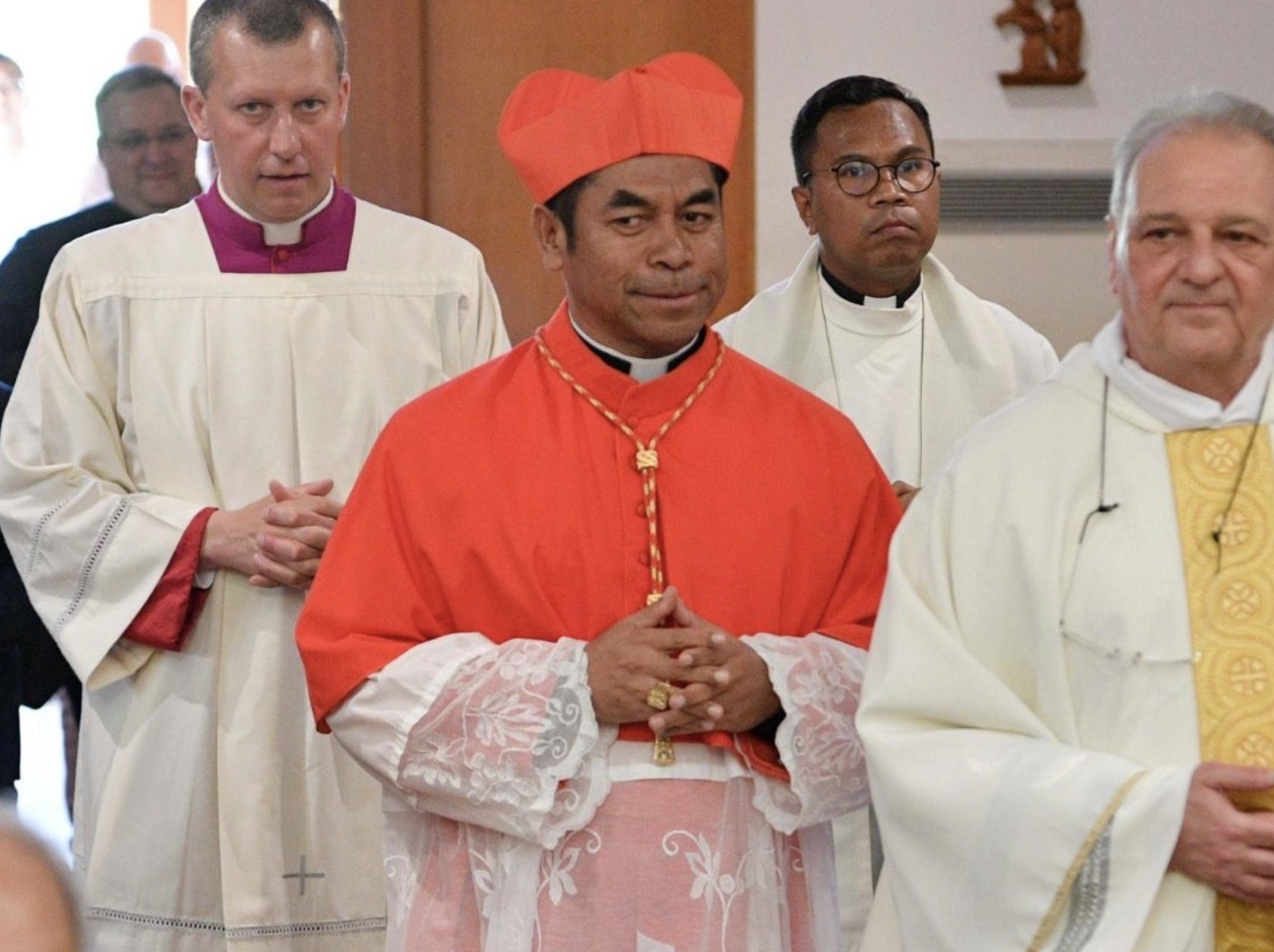Carmo da Silva: young people and faith, the priorities of the cardinal from Timor-Leste
Elevated by Pope Francis in 2022, the first East Timorese cardinal is a Salesian from a small Catholic country where young people make up 70 per cent of the population, marked by a long struggle for independence from Indonesia. Appointed bishop of Dili in 2016, he inaugurated the John Paul II Catholic University and promotes an “open” and united Church. He remembers the joy of welcoming the pontiff before an immense crowd on Francis’s trip last September.
Rome (AsiaNews) – “I am convinced that Pope Francis did not offer this to me, Virgilio, but rather to the Church and the people of Timor-Leste,” said in 2022 Archbishop Virgilio do Carmo da Silva of Dili when he was elevated to the cardinalate by the late pontiff, who picked most of the current members of the College of Cardinals.
This made him the first cardinal from the small Southeast Asian country with a Catholic majority (about 97 per cent), which the late pope visited during his last apostolic journey, last September, celebrating Mass in the Esplanade of Taci Tolu before a huge crowd (according to some estimates as many as 600,000, half of the small country’s population).
The 57-year-old is certainly a face who embodies that "most peripheral periphery of the world" so dear to Francis, which Cardinal Giovanni Battista Re mentioned during the homily in Saturday's funeral Mass.
Virgílio do Carmo da Silva was born in 1967 in Venilale, Diocese of Baucau. He pursued his early education with the Salesians, then entered the Salesian Society of Don Bosco.
The care the great Italian educator saint showed for young people inspired the magisterium of the East Timorese cardinal, pastor in a country where about 70 per cent of the population is under 30.
When he went to Rome on 7 May 2022 to receive his scarlet biretta, during the celebration at the parish of St Albert the Great, in the north of Rome, he remembered the kids of his country. "Making me a cardinal was a gift from the pope to the youth and people of Timor,” he said on that occasion.
On numerous occasions he stated that he cares about young people, aware of the strong push many feel to emigrate abroad in search of a more dignified life than in their country.
The parents of today’s young generation played a central role in the country's struggle for independence, achieved only in 2002 after centuries of Portuguese colonial rule, during which missionaries brought Christianity and many suffered martyrdom, and Indonesia’s invasion and annexation in 1976, which saw the loss of thousands of lives in a long and brutal war.
The cardinal, who is the metropolitan archbishop of Dili, Timor-Leste’s capital, experienced this painful period, together with the difficult post-war years marked by internal divisions among the country’s pro-independence forces.
Sent to Manila to study Philosophy and Theology, he made his perpetual profession with the Salesians in 1997 and was ordained a priest the following year. In the early 2000s, he obtained a licentiate in Spirituality at the Pontifical Salesian University in Rome.
He subsequently carried out his ministry back home, and was appointed Provincial of the Salesians of his province in 2015. Pope Francis picked him in 2016 to be the bishop of Dili, and then elevated the local Church to the rank of archdiocese three years later.
Carmo da Silva declared himself deeply "in love" with his country and its history. His pastoral service has been devoted above all to education, which is a priority in the social milieu in which he operates. To this end, an example of his work is the inauguration of the John Paul II Catholic University in Dili, in 2021.
The motto chosen for Pope Francis's visit last year was "May your faith become your culture", a commitment da Silva welcomed and stressed several times, eager to help people "grow in faith” on the path towards unity, hoping for an "open church" without hostile groups.
Francis's trip to Timor-Leste – 35 years after John Paul II’s, undertaken when the country was still an Indonesian province – was a central experience in his pastoral ministry.
“The government, the Church and the entire people have contributed to the success of this visit,” Silvia said the day after the visit. “The strength of faith present in this young country has moved the Pope and almost the whole world."
Mindful of the country's recent painful and troubled history struggling for independence, the cardinal also said that Pope Francis’s visit had served to “affirm and confirm the national identity and to tell the Timorese that no matter how small the country is: you are Timorese and you are Catholic and you have your own identity.”
The prelate’s face is that of a smiling faith, entering the conclave to elect for the first time the successor of Peter, despite extreme poverty and a thousand wounds.
22/09/2022 16:40
30/11/2023 16:18
20/05/2022 16:12







.png)










